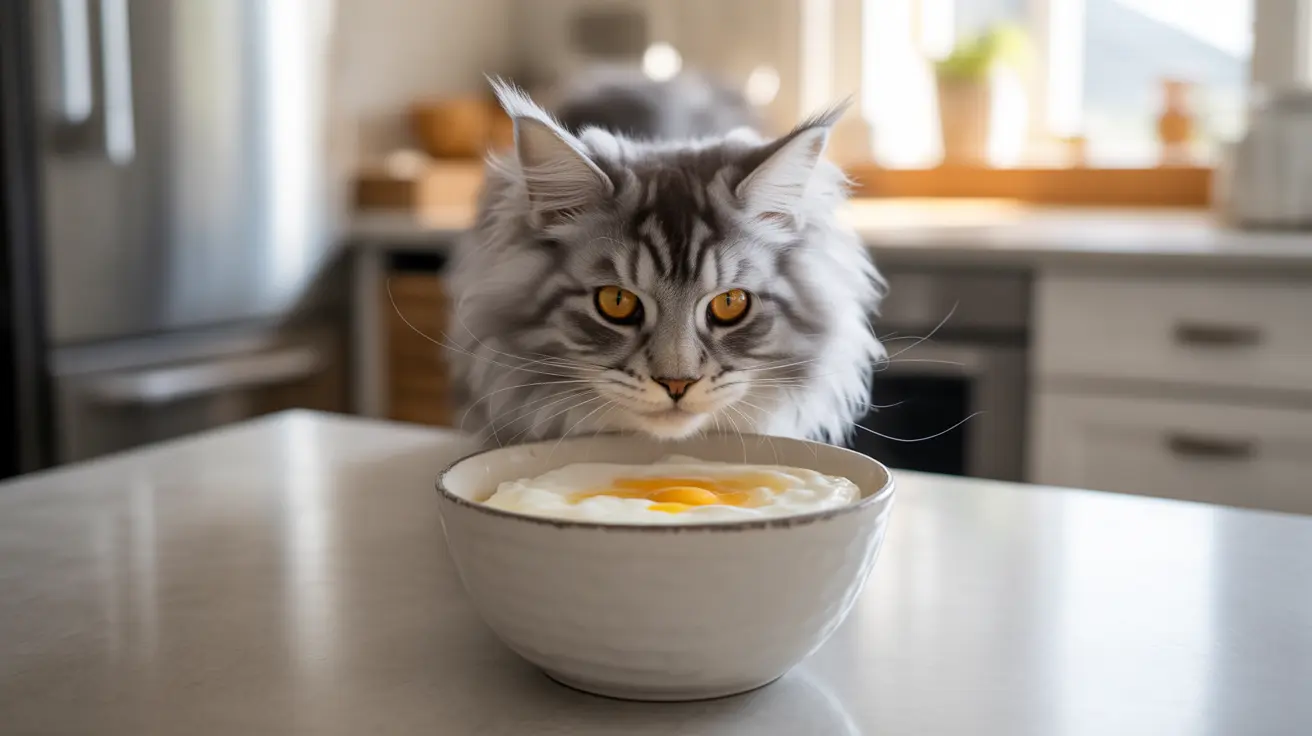Many cat owners wonder about incorporating egg whites into their feline's diet. As a protein-rich food source, egg whites can offer nutritional benefits for cats when prepared and served correctly. However, there are important guidelines and precautions to consider before adding egg whites to your cat's meal plan.
In this comprehensive guide, we'll explore everything you need to know about feeding egg whites to cats, including proper preparation methods, potential benefits, risks, and recommended serving sizes.
The Nutritional Benefits of Egg Whites for Cats
Egg whites offer several nutritional advantages for cats when served as an occasional treat:
- High-quality, easily digestible protein
- Low in fat and calories
- Rich in essential amino acids
- Good source of riboflavin and selenium
- Contains beneficial minerals
Safety First: Proper Preparation Is Critical
When it comes to feeding egg whites to cats, proper preparation is non-negotiable:
Always Cook Egg Whites Thoroughly
Raw egg whites contain avidin, a protein that blocks biotin absorption and can lead to serious health issues. Cooking neutralizes this harmful compound and eliminates dangerous bacteria like salmonella.
Keep It Plain and Simple
Never add seasonings, salt, oils, or other ingredients to eggs intended for your cat. These additives can be toxic to felines and cause digestive issues.
Portion Control and Feeding Guidelines
Moderation is key when feeding egg whites to cats:
- Limit portions to approximately one tablespoon per serving
- Offer as an occasional treat, not a daily supplement
- Always serve at room temperature
- Monitor your cat for any adverse reactions
Special Considerations and Health Concerns
While egg whites can be safe for most healthy cats, certain situations require extra caution:
Cats with Health Conditions
Cats with kidney disease should avoid extra protein sources like egg whites. Those with pancreatitis may benefit from the low-fat nature of egg whites, but consult your veterinarian first.
Kittens and Senior Cats
Kittens have sensitive digestive systems and should stick to their regular diet. Senior cats may have different nutritional needs, so check with your vet before introducing egg whites.
Signs of Egg Allergies or Intolerance
While rare, some cats may be allergic to eggs. Watch for these symptoms:
- Vomiting or diarrhea
- Itching or skin irritation
- Excessive grooming
- Swelling around face or paws
- Respiratory issues
Frequently Asked Questions
Can cats safely eat egg whites, and how should they be prepared?
Yes, cats can safely eat egg whites when they are thoroughly cooked (boiled or scrambled) and served plain without any seasonings or additives. Never serve raw egg whites to your cat.
Why are raw egg whites dangerous for cats, and what health risks do they pose?
Raw egg whites contain avidin, which blocks biotin absorption and can lead to vitamin B7 deficiency. They may also harbor harmful bacteria like salmonella. Cooking eliminates these risks.
How much cooked egg white is appropriate to give a cat as a treat?
One tablespoon of cooked egg white is an appropriate serving size for cats. This should be offered occasionally, not daily, as part of a balanced diet.
What signs indicate a cat might be allergic to eggs, and how should owners respond?
Signs of egg allergies include vomiting, diarrhea, itching, swelling, and respiratory issues. If you notice these symptoms, discontinue egg whites immediately and consult your veterinarian.
Are egg whites better than whole eggs for cats with weight or digestive issues?
Yes, egg whites are generally better than whole eggs for cats with weight or digestive concerns because they're low in fat and calories while still providing high-quality protein. However, always consult your vet before making dietary changes.
Conclusion
Egg whites can be a healthy, protein-rich treat for cats when prepared and served properly. Remember to always cook them thoroughly, serve in moderation, and monitor your cat for any adverse reactions. While egg whites can complement your cat's regular diet, they should never replace balanced, commercial cat food formulated for complete nutrition.






